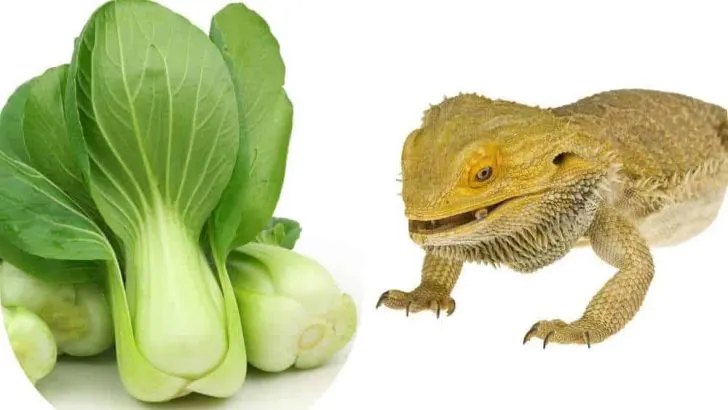Bearded dragons need to eat a varied diet in order to stay healthy and thrive. Vegetables, particularly green vegetables, are an indispensable part of their diet. But not all greens are made equal. When it comes to feeding a bearded dragon, there are better and worse choices.
In today’s article, I’m going to talk about bok choy in this context.
Can bearded dragons eat bok choy? If yes, how much and how often? Is it better to avoid this vegetable? These are just some of the questions that I’ll be covering today. If this interests you – and it should, if you’re a bearded dragon owner – then do read on!
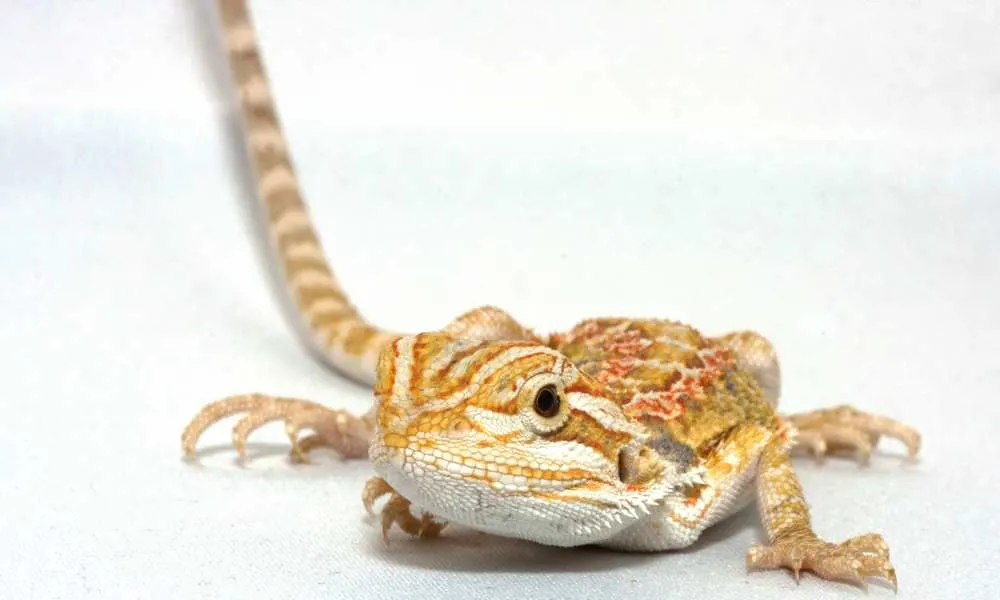
Can Bearded Dragons Eat Bok Choy?
Yes, but…
But what? I’ll get to that in a minute.
In short, yes, bearded dragons can eat bok choy. This vegetable is chock-full of calcium, a nutrient that bearded dragons need in their diet. Bok choy is one of the rare members of the lettuce family that contains high levels of this mineral.
| Vegetable | Calcium Content per 100g |
|---|---|
| Collard Greens | 268 mg |
| Kale | 172 mg |
| Bok Choy | 158 mg |
| Swiss Chard | 102 mg |
| Broccoli | 61 mg |
Now, here’s the “but.”
Bok choy contains a lot of goitrogens, a substance that may cause thyroid issues. The latter usually happens when the animal eats too much of this vegetable.
All in all, bok choy is safe for bearded dragons to eat as long as it’s consumed in moderation. It should by no means be the only green veggie that the beardie eats.
As I briefly stated earlier, a varied diet is key for keeping your pet healthy, so make sure to throw in other greens in the mix too!
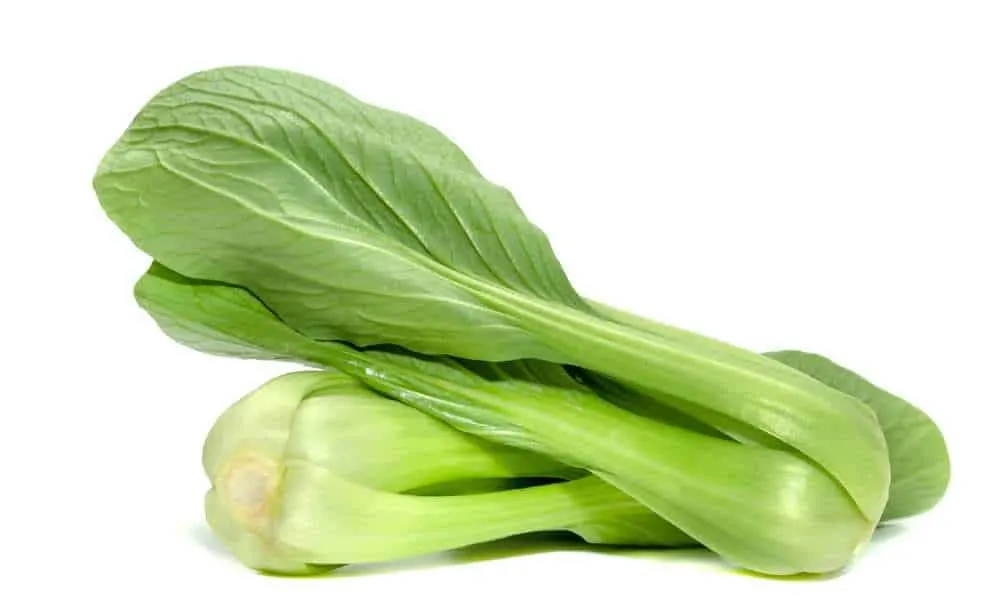
The Benefits Of Feeding Bok Choy To Your Bearded Dragon
High In Calcium
OK, so you already know that one of the benefits of bok choy is its high calcium content. Why is this important for bearded dragons?
Without enough calcium in their diets, bearded dragons may develop a condition called metabolic bone syndrome or MDB. This illness leaves the dragons in a lot of pain and makes their movement much harder. Feeding them a bit of bok choy every now and then can prevent this.
Vitamins A and C
Aside from calcium, bok choy contains a lot of Vitamins C and A. These nutrients support the bearded dragons’ immune system, which is of paramount importance.
There is a slight caveat when it comes to Vitamin A, though. Namely, too much of it is toxic for this animal, so, again, they should eat bok choy in moderation.
Just Enough Phosphorous
A neat thing about bok choy is that it has just the right amount of phosphorous for bearded dragons’ needs.
It contains about two times less phosphorous than calcium, which is an excellent ratio. If there was more phosphorous, it could inhibit calcium absorption. So, this one vegetable fulfills your dragon’s requirements for both these minerals.
Low In Fat and Sugar
This might be a no-brainer, but I’d still like to point out that bok choy is low in both fat and sugar, which is a good thing. Eating fatty and sweet foods makes bearded dragons become overweight which leads to a plethora of health problems.
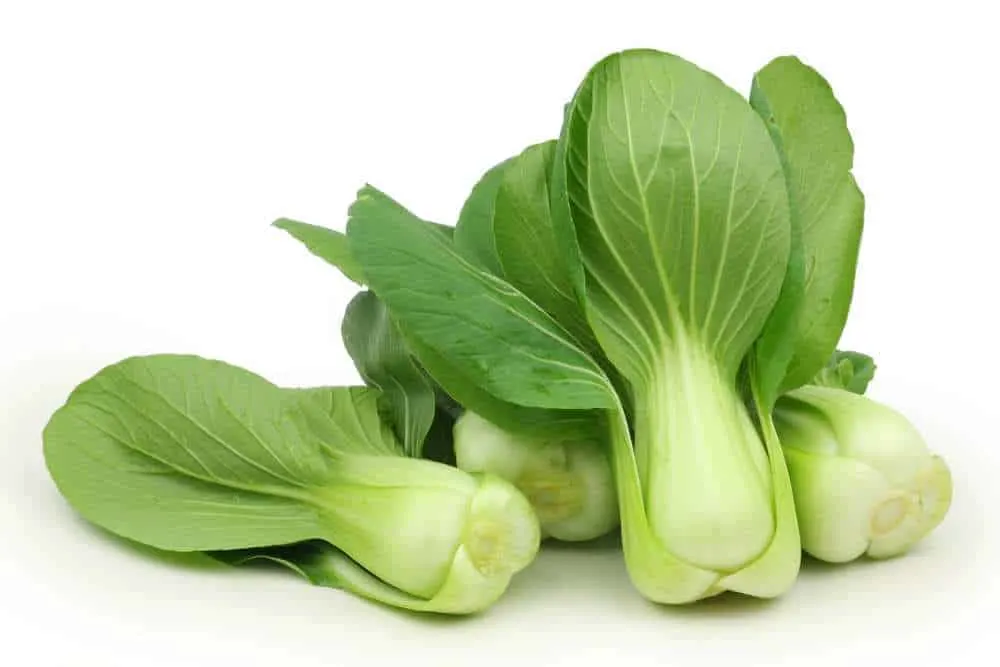
The Dangers Of Bok Choy
OK, we’ve seen all the benefits that bok choy can provide for your pet, and now it’s time to look at the downsides.
Goitrogens
Pretty much the only negative thing about bok choy is its high goitrogen content.
What are goitrogens? These are compounds found all across the plant world, which, if ingested, could cause issues with the thyroid gland.
As I already said, these issues usually occur due to overconsumption of goitrogen. And, since bok choy has high levels of these compounds, it doesn’t take too much for your bearded dragon to “overdose.”
This vegetable shouldn’t and mustn’t be your pet’s staple food. It should be eaten in moderation, and there won’t be anything to worry about. I’ll talk about the dosage and frequency in a bit.
It’s good to know that many other vegetables commonly fed to dragons, like collard greens, also contain goitrogens. So, if your beardie already had some of those, don’t give it bok choy that day.
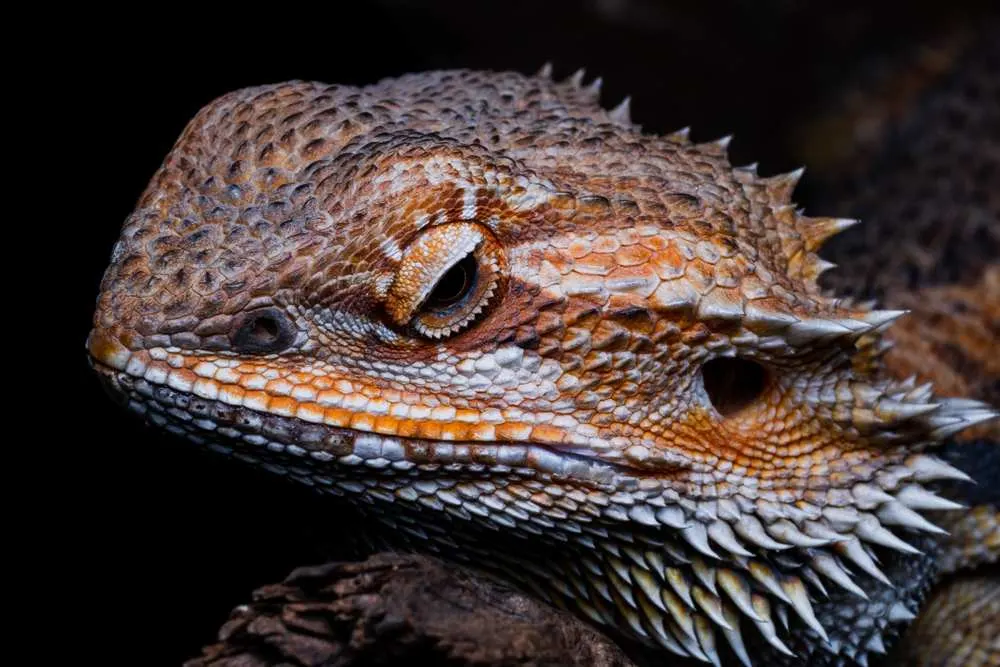
Is Bok Choy For All Bearded Dragons?
Should bok choy be given to all bearded dragons regardless of age or size?
Absolutely, as long as they don’t gorge on it daily.
This vegetable is even more useful to baby beardies than to adults. As you may know, these reptiles grow really fast during their first year of life.
This rapid growth requires a lot of fuel, especially protein from insects and calcium from greens. Once again, this shouldn’t be a staple green but one of the many that you should include in the animal’s diet.
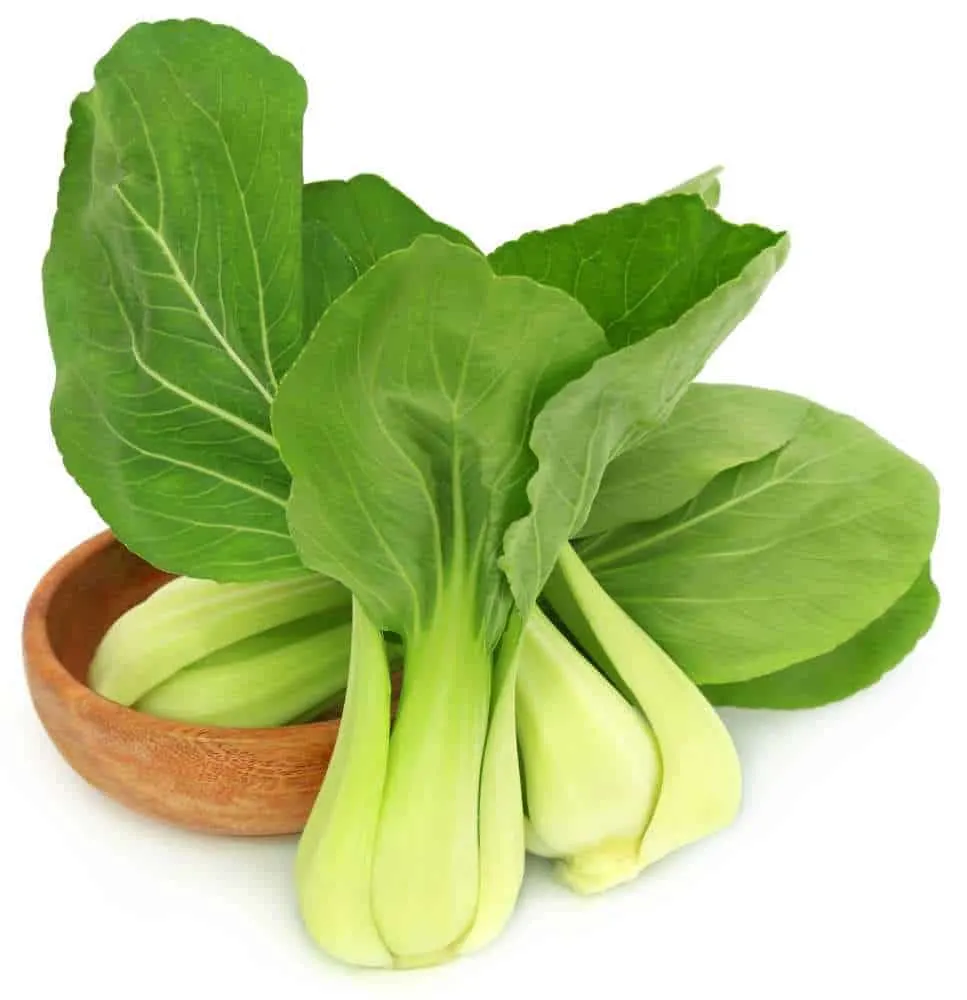
How Often Should You Give Bok Choy To A Bearded Dragon?
OK, I’ve used the term ‘in moderation’ too many times already, and now I’d like to give you some concrete guidelines.
How many times a week should bearded dragons eat bok choy?
Once a week at most. It definitely shouldn’t have it more often than that if you want to avoid the overconsumption of goitrogens.
What about portion sizes?
Two or three leaves should do the trick. You can give the bearded dragon both the green and the hard white parts.
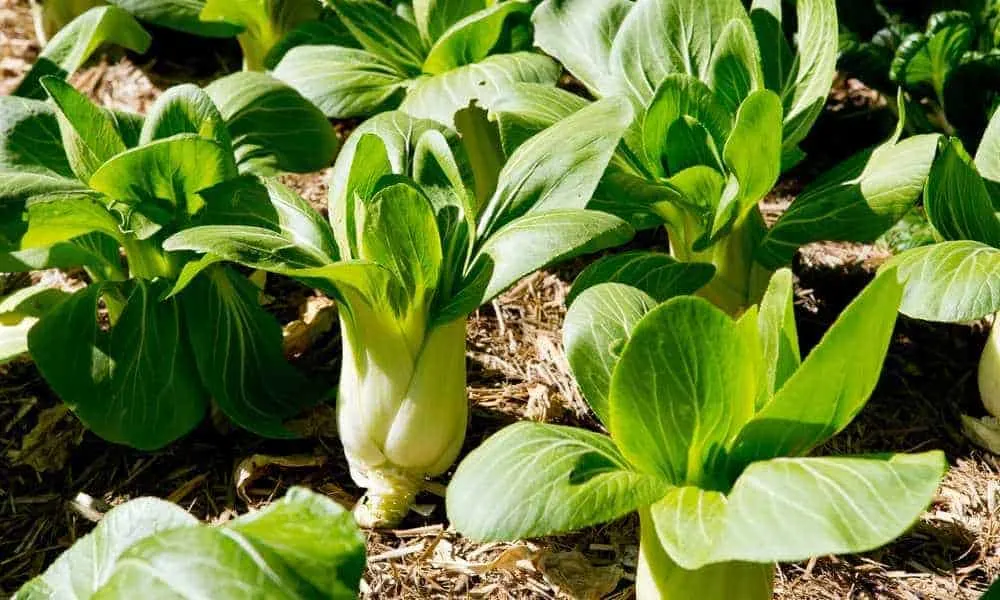
How To Prepare Bok Choy For Bearded Dragons?
Serving bok choy to your pet doesn’t require a lot of preparation, which is great for you, right?
There are a few things that you need to know and do to make sure that the dragon gets the most benefits out of this vegetable.
Here are a few simple rules to follow when feeding bok choy to a bearded dragon:
Go For Organic Whenever Possible
Like most plants in modern agriculture, bok choy is ridden with pesticides. Small animals like bearded dragons do not handle these toxins well, and ingesting a lot of them may lead to health issues. That’s why, if you truly care for your pet, spend a little bit more money on organic bok choy if you can.
Wash It Thoroughly
Even if you only give organic bok choy to your beardie, make sure to give it a good wash first. God knows what the vegetables may have been in contact with and what’s accumulated on the surface. A quick blast under the tap will rinse it all off!
Raw Is Best
There’s no need to cook bok choy before serving it. As a matter of fact, I advise against cooking it. The high temperatures kill most of the nutrients in this vegetable, and your pet won’t get much out of it. Beware that isn’t a general rule, as some greens do require cooking before serving.
Cut It Into Pieces
The big bok choy leaf is troublesome for some beardies to eat. You can make it easier by cutting it up into small pieces.
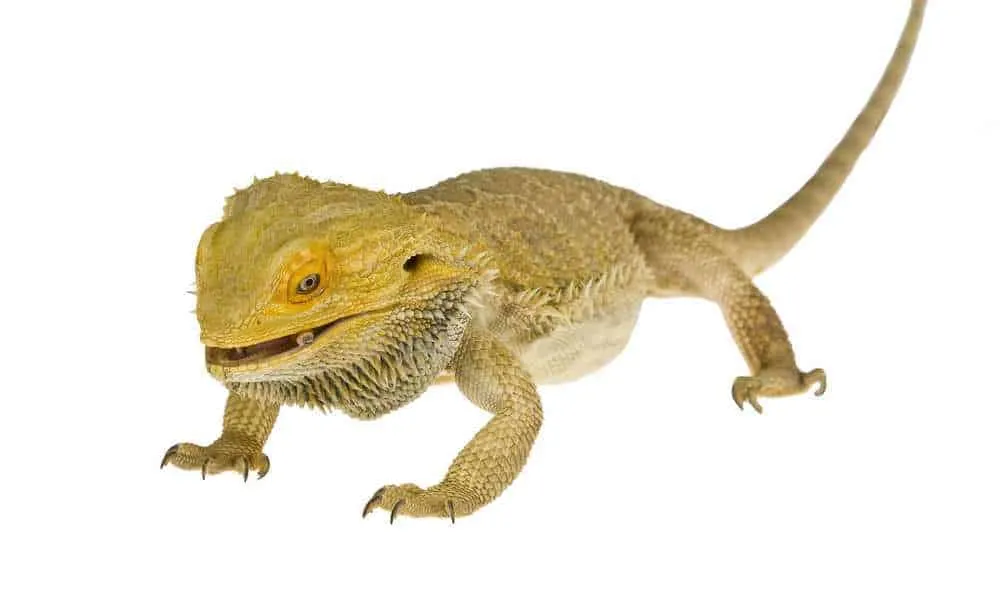
Alternatives To Bok Choy
Since bearded dragons need variety in their diets, it’s a good idea to know which green vegetables they can eat. The good news is that they can much on a lot of different veggies, with the most popular choices being:
All of the above can be fed to the dragon daily, and they’re packed with goodness!
The Importance Of Greens In A Bearded Dragon’s Diet
As I’m sure you know, a bearded dragon’s diet consists mostly of insects, with some added vegetables. Insects are where beardies get most of their protein from and are the mainstay of their diets.
Vegetables, greens, in particular, provide the dragons with much-needed vitamins and minerals. Aside from the ones mentioned in this article (Calcium, Vitamin A, Vitamin C), these animals need Iron and Potassium, both of which are found in greens.
A diet that lacks one or more of the aforementioned nutrients may lead to deficiencies and diseases. In case your pet doesn’t like greens, which isn’t that rare of a thing, it would be wise to introduce some supplements to its diet.
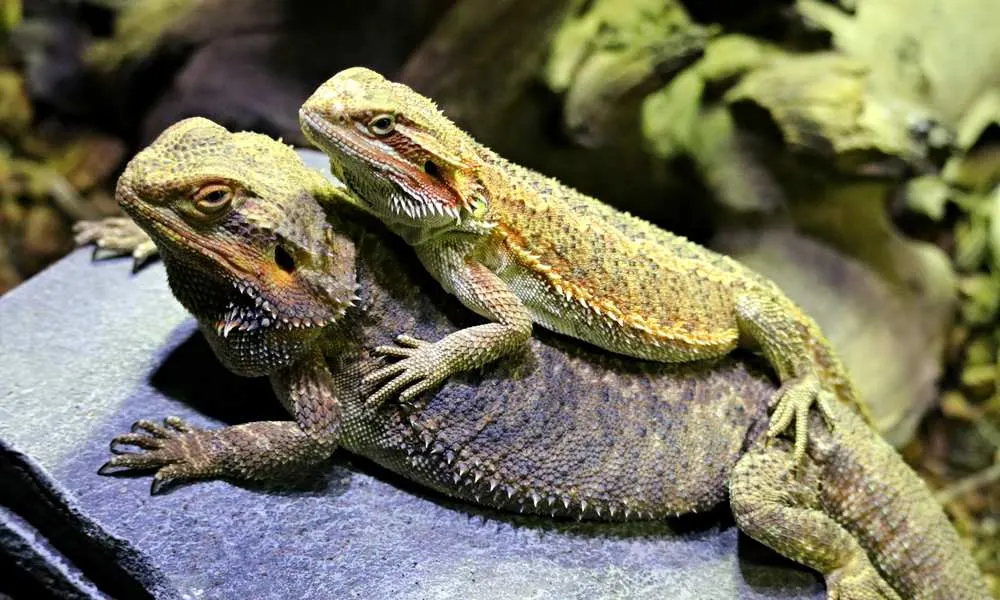
What To Do If Your Bearded Dragon Eats Too Much Bok Choy?
No need to panic. Having one big portion of bok choy probably won’t hurt your pet. If you notice that it’s becoming sluggish or tired too easily, it’s best to take it to a vet.
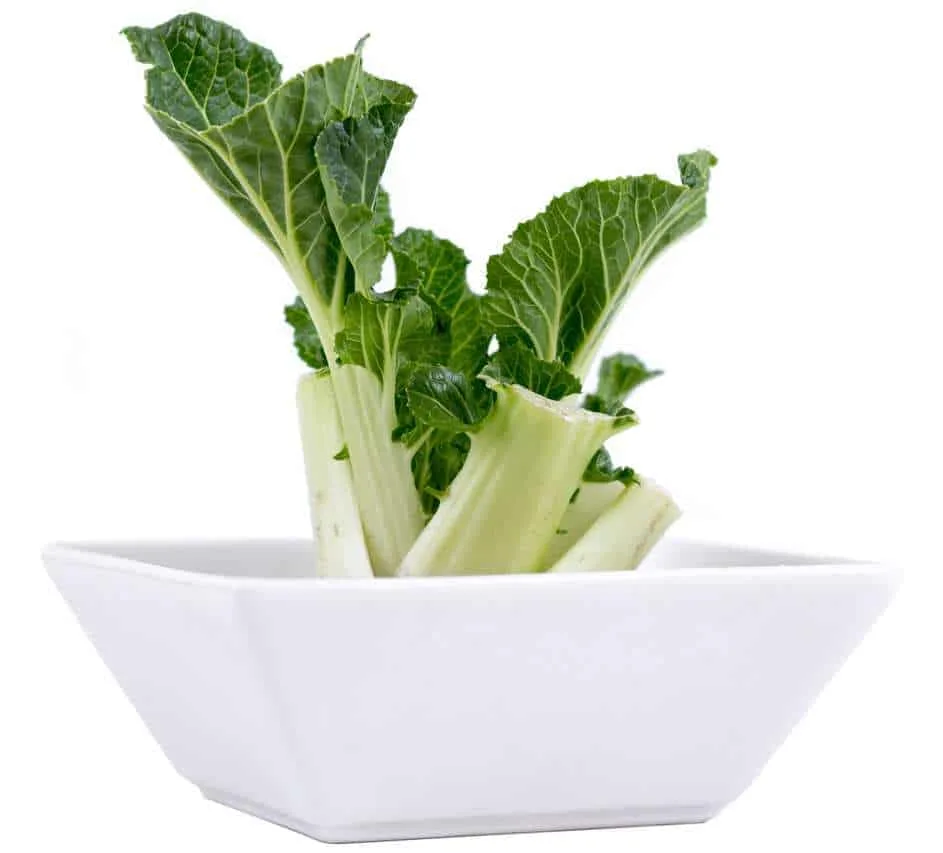
Conclusion
OK, let’s do a quick recap of what we learned today.
- First, bok choy is safe for bearded dragons to eat if given to them in moderation. One portion a week is more than enough.
- Second, it’s best served raw and cut up into small pieces.
Stick to these rules, and your beloved pet will reap all the benefits of consuming this vegetable without experiencing any negative effects.

